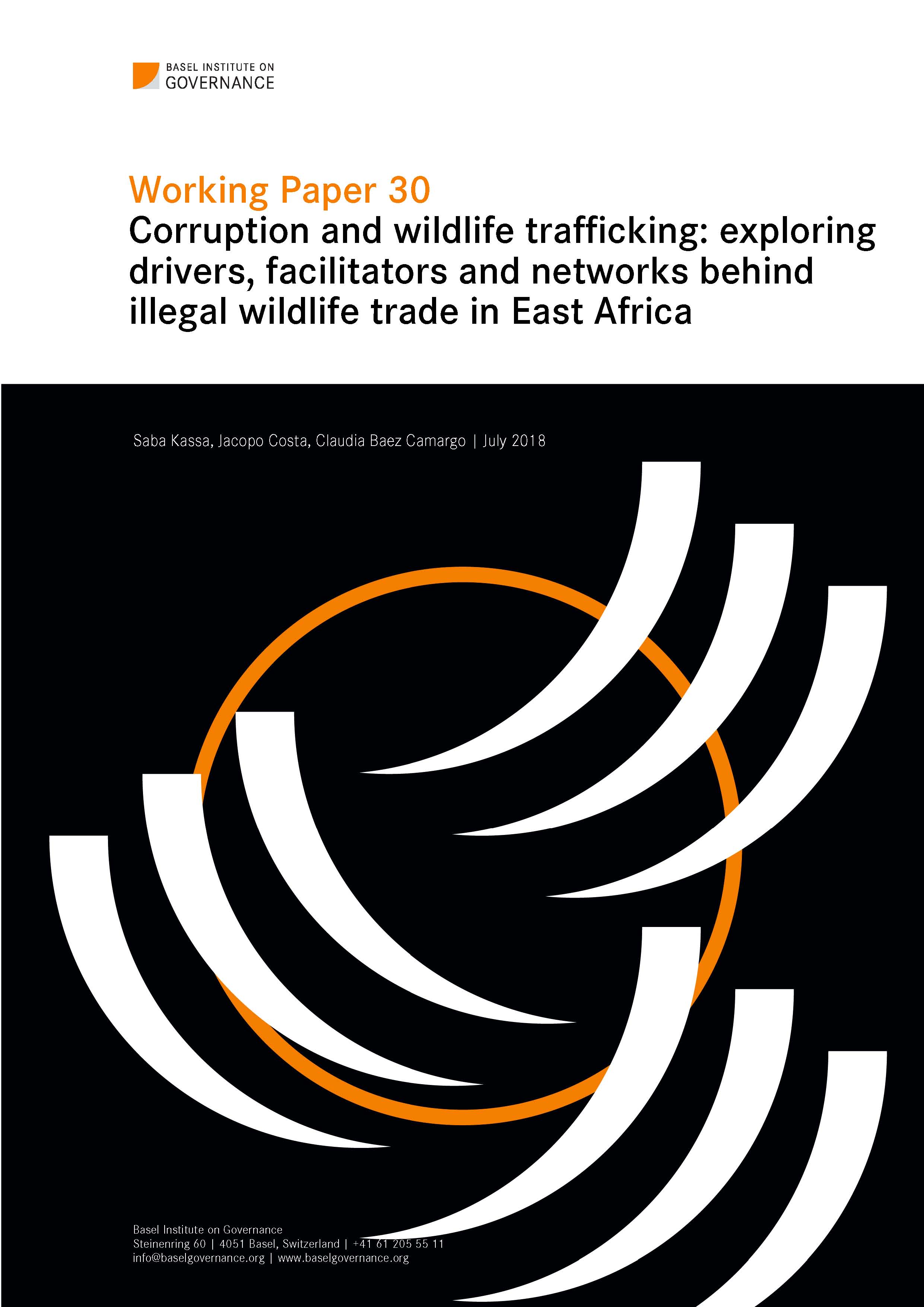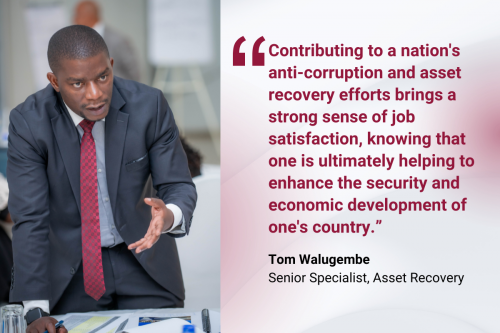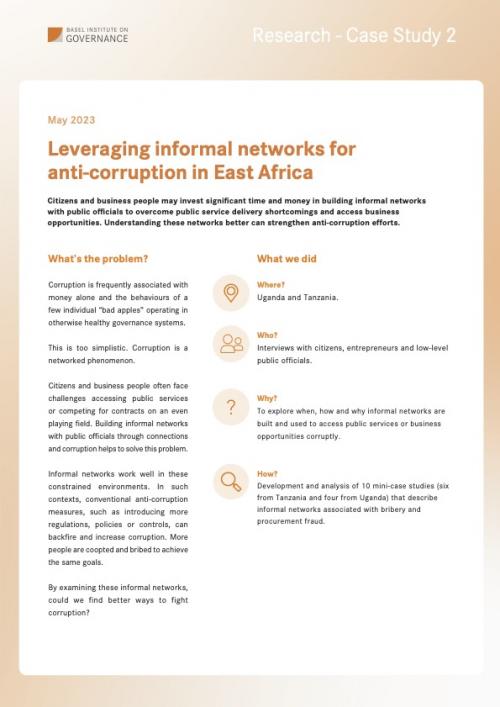Working Paper 30: Corruption and wildlife trafficking: exploring drivers, facilitators and networks behind illegal wildlife trade in East Africa
As part of a multi-disciplinary programme of work focused on intelligence-led action against financial crime in illegal wildlife trade (IWT), the Public Governance division of the Basel Institute on Governance is leading research and community engagement activities in East Africa.
The objective is to contribute towards the prevention and combating of IWT by developing a better understanding of the context-specific drivers of trafficking and the role of informal social networks and their associated corrupt practices in facilitating such illicit behaviours.
This Working Paper presents a broad overview of relevant literature on wildlife trafficking, focused on two main questions:
- Why does wildlife trafficking happen?
- How does wildlife trafficking happen?
It reflects on important themes and dynamics in regard to the wildlife trade in Africa; the drivers and facilitators of wildlife trafficking; the characteristics, functions and operations of trafficking networks; corruption as a cross-cutting theme; and the important role of Uganda as a transit country for the trafficking of wildlife.
The literature review provides the conceptual anchor for social network analysis and field research in East Africa, in particular Uganda. The insights gained are important stepping stones to address the third main question of the wider research project:
- What can be done to curb wildlife trafficking?
Developing a better understanding of the root causes of IWT, along with the application of social network analysis to support the investigation of related crimes, provides a novel and complementary approach towards the prevention and effective combating of IWT in East Africa.
About this Working Paper
This paper is part of the Basel Institute on Governance Working Paper Series, ISSN: 2624-9650.
Links and other languages



